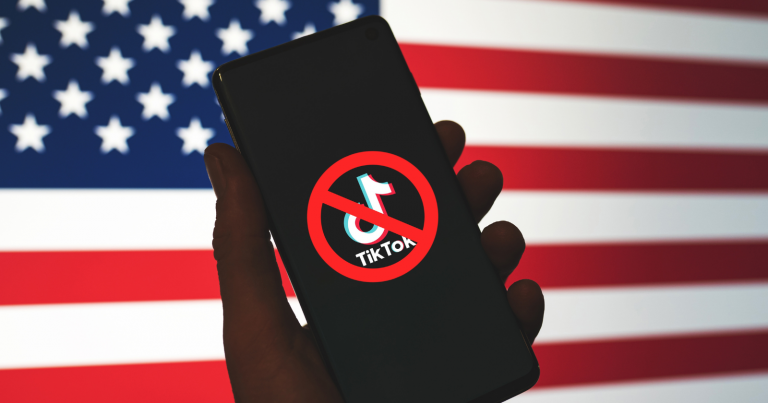
The United States House of Representatives has once again taken steps towards potentially banning TikTok from the country, passing a bill that could force its Chinese parent company, ByteDance, to divest from the popular social media platform.
This legislative move marks a renewed effort to address national security concerns associated with TikTok, which has long been scrutinized due to its ties to China. But it has stirred fresh criticism from free speech advocates.
According to The Verge, the bill passed with a resounding 360-58 majority, is part of a broader foreign aid package that includes measures related to sanctions on foreign adversaries such as Russia. By incorporating the TikTok provision into this larger bill, lawmakers aim to expedite its consideration in the Senate.
Register for Tekedia Mini-MBA edition 19 (Feb 9 – May 2, 2026): big discounts for early bird.
Tekedia AI in Business Masterclass opens registrations.
Join Tekedia Capital Syndicate and co-invest in great global startups.
Register for Tekedia AI Lab: From Technical Design to Deployment (next edition begins Jan 24 2026).
The urgency is underscored by the inclusion of provisions for military aid to Ukraine and Israel, as well as humanitarian aid to Gaza.
Senate Commerce Committee Chair Maria Cantwell, who had previously been noncommittal about the standalone TikTok bill, has voiced her support for the legislation in its current form. The updated bill extends the timeline for ByteDance to divest TikTok, providing the company with up to a year to complete the sale, compared to the initial six-month deadline. This extension is intended to facilitate a smoother divestment process and reduce the likelihood of an abrupt ban.
Representative Gregory Meeks, a prominent Democrat on the House Foreign Affairs Committee, expressed his backing for the package containing the updated TikTok legislation. He highlighted concerns about the earlier standalone bill’s broad authorization and commended the revised timeframe for divestment as a positive step forward.
Meeks said he opposed the earlier standalone TikTok bill “out of concern that it would be a broad authorization that could be misused far beyond what we in Washington are currently debating, beyond just TikTok.”
He added that this time, “the bill took a step in the right direction with a more realistic timeframe for a complex divesture process. Let me say for the record, that I believe this bill is about one company that additional authorities provided to the executive branch or to be interpreted narrowly.”
However, not all Democrats share the same sentiment. Representative Joaquin Castro expressed opposition to the House package, indirectly referencing TikTok’s role in shedding light on the conflict in Gaza under Israeli Prime Minister Benjamin Netanyahu’s leadership.
“We have seen how Prime Minister Netanyahu’s government has used American weapons to kill indiscriminately, to force famine,” Castro said. “We cannot escape what we see before us every day. That is the blessing of today’s technology: TikTok, Instagram, Facebook, all of it. And when we see it, we have to decide what we’re going to do about it. Are we going to participate in that carnage or not?”
Despite his reservations, the bill passed with a significant majority, reflecting bipartisan support for addressing national security issues related to social media platforms.
Representative Raja Krishnamoorthi explained that the bill does not seek to ban TikTok outright but rather to compel ByteDance to divest from the platform due to alleged ties to the Chinese Communist Party. This distinction underscores the bill’s focus on national security concerns and the protection of American interests.
As the bill now moves to the Senate, the schedule presents a potential obstacle, as lawmakers are currently on recess for the Passover break. However, the urgency of the foreign aid measures may prompt Senate leadership to reconvene for a vote.
If the TikTok provision clears the Senate and is included in the final bill, it will be sent to President Joe Biden for approval, with his commitment to signing the legislation already confirmed. He said in March, “If they pass it, I’ll sign it.”
However, the latest move by the US government to force TikTok to divest is facing backlash, with many arguing that it is a misrepresentation of what the United States stands for.
“In my opinion, TikTok should not be banned in the USA, even though such a ban may benefit the ? platform,” X owner, Elon Musk, said on Friday. “Doing so would be contrary to freedom of speech and expression. It is not what America stands for.”
In my opinion, TikTok should not be banned in the USA, even though such a ban may benefit the ? platform.
Doing so would be contrary to freedom of speech and expression. It is not what America stands for.
— Elon Musk (@elonmusk) April 19, 2024



